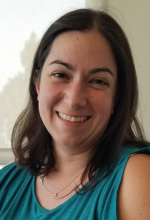Welcome to Adulthood – Now What? - Understanding How Stress Impacts Your Mental Health
Welcome to Adulthood – Now What? - Understanding How Stress Impacts Your Mental Health

Congratulations! You’ve graduated from college, landed your first adult job, and have moved across the country away from family and friends to enter the work force. Now what?? While these are all amazing accomplishments that highlight your transition into independence and adulthood, they also are big life changes (especially all at once) that can be very stressful.
A stressor is a physical or psychosocial stimulus that elicits a physiological (i.e. a change in hormones) and behavioral stress response. Having a supervisor or boss that is lacking in interpersonal skills or any semblance of human decency? A stressor. Being overworked? A stressor. Not getting enough sleep because of an upcoming deadline or a rowdy neighbor? Both stressors. Not knowing anyone at work? A stressor. Feeling homesick? A stressor. And while these stressors can occur in isolation, in many instances, they occur in tandem, exacerbating the adverse effects of stress on your body and brain to impact your health.
So what can you do?
1. Be informed and know what to look for in yourself. Exposure to daily, unrelenting stressors increases your risk for stress-related mental health conditions, including depression and anxiety. The cardinal symptoms of depression and anxiety are feeling down/depressed and constantly worrying, losing interest in pleasurable activities (i.e. hanging out socially), being tired all the time (fatigue), changing your sleep pattern (insomnia or sleeping too much) or eating patterns (eating less or a lot more). Being aware that these changes in your mood and behavior may occur after all these big life changes is important because there are things you (and those around you) can do to alleviate the negative impacts of these new adult stressors and even prevent them from happening in the first place.
2. Check-in with your close friends and family often. There is an overwhelming amount of data that show that social support buffers individuals from the adverse effects of stress exposure. What this means is that you should communicate with your family and friends often. Technology allows us to do this across all corners of the earth. And don’t just rely on text messages and social media, pick up the phone and call people, or use any of the many video chat platforms that exist. If possible, make trips back home to visit your support network, or invite them to come visit you in your new digs wherever they may be.3. Make time for yourself. There are many ways to decompress, and you know what works best for you. Volunteer. Go to yoga. Meditate. Run, lift weights, or join a local sports league. Socialize. Sleep in. Whatever it is, make time to take care of yourself.
4. Don’t be afraid to seek help. Ask for help the minute you start questioning whether or not you made need help. There are evidence-based (scientifically supported) treatments for anxiety and depression that are effective, so it is better to act sooner rather than later. And don’t worry about the stigma associated with mental health conditions – remember that you are not alone. Statistics from the National Institute of Mental Health show that 16.2 million adults (almost 8% of adults) in the United States will experience at least one major bout of depression and/or anxiety. Furthermore, 18-25 year olds are the most at risk for experiencing depression and/or anxiety, as prevalence rates are closer to 11% in your “coming of age” age bracket. So, reach out to your support network (see point two above) and find a licensed mental health provider in your area to talk to. There are many hotlines to call that have loads of good (scientifically supported) information and numerous online resources to check out. Starting with ADAA’s or Anxiety.org’s websites are fantastic places to start.












